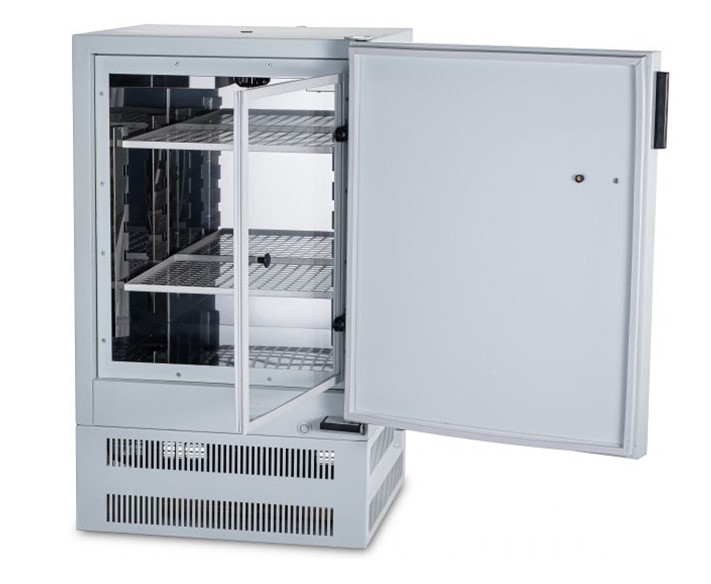The European Union assessed Russia's dependence on high - tech

 Rapid 4 in 1 tests for determining the residual amount of neomycin, kanamycin, gentamicin, spectinomycin in milk, whey
Rapid 4 in 1 tests for determining the residual amount of neomycin, kanamycin, gentamicin, spectinomycin in milk, whey PIONEER MEIZHENG BIO-TECH (5 in1) JC0871/ Rapid tests for the determination of the residual amount of β-lactams, tetracyclines, chloramphenicol, streptomycins, ceftiofur in milk, whey.
PIONEER MEIZHENG BIO-TECH (5 in1) JC0871/ Rapid tests for the determination of the residual amount of β-lactams, tetracyclines, chloramphenicol, streptomycins, ceftiofur in milk, whey.
In terms of imports of high-tech products, “Russia depends on Europe by more than 45%, from the United States by 21% and from China by only 11%,” EU High Representative for Foreign Affairs and Security Policy Josep Borrell wrote over the weekend in a blog post. blog.
“Of course, Russia may try to limit the effect of sanctions by substituting imports for products of its own production. This was done not without success in the agricultural sector after the 2014 sanctions. However, for high-tech products, import substitution is much more difficult,” Borrell said.
As an example, he cited the semiconductor industry, automotive, oil and gas production. Sanctions on semiconductor exports to Russia have had a direct impact on Russian companies that produce consumer electronics, computers, aircraft, cars or military equipment, Borrell wrote. Over time, the Russian oil industry will suffer not only from the departure of foreign operators, but also from the increasing difficulty in acquiring advanced technologies, for example, for horizontal drilling, says the head of European diplomacy.
A representative of Borrell told RBC that the figures he quoted were the result of "internal analysis and data from the European Commission."
According to an analysis by the European think tank Bruegel based on data from the Observatory of Economic Complexity (OEC) and the US Bureau of Statistics , Russia imports $19 billion worth of high-tech goods a year. This is relatively small compared to Russia's total goods imports of $293 billion in 2021. The import of high-tech products from the EU countries is $9 billion: mainly aircraft and their components, biotechnologies, information and communication technologies. China is the main supplier of optoelectronic technologies to Russia, says Bruegel.
According to Rosstat, in 2021, 76% of Russian imports were “high-tech goods”, but the list of such products even includes suitcases, faux fur, wallpaper, coats, bottles, iron wire, etc.
In general, in the Russian import of goods, the share of countries that have imposed sanctions against Russia accounts for more than half - 51.4% ($150.8 billion out of $293.5 billion, according to data for 2021). If we also take into account the purchases of services in these countries, approximately $50 billion will be added (out of $75.5 billion of total imports of services in 2021), follows from the data of the Bank of Russia.
President Vladimir Putin said in June that a lot of attention has been paid to import substitution in recent years: the country has succeeded in a number of areas - the agro-industrial complex, the production of medicines, medical equipment, the military-industrial complex. “Let me emphasize: to produce everything and everything, of course, is impossible and unnecessary. However, we need to have all the critical technologies in order to, if necessary, quickly establish our own production of any product. This is exactly what we did when we quickly provided vaccines for the coronavirus,” he said.
Manturov announced a departure from the market industrial policy Economics
Dependence of domestic production on imported components
In addition to goods that are immediately used in consumption, Russia buys investment and intermediate goods abroad for the needs of domestic production. According to the latest data from Rosstat, for 2020 (latest available data), the share of intermediate goods - raw materials, materials and components - in total imports was 41.9%, investment (machinery, equipment) - 25.3%.
After the introduction of sanctions and voluntary restrictions on exports to Russia, enterprises faced problems in the supply of imported raw materials and equipment. According to monitoring data provided to RBC by Sergei Tsukhlo, head of the Gaidar Institute's market research laboratory, in June more than half of the respondents (51%) reported a shortage of imported raw materials. Worst of all now is the situation in the food industry: 79% of enterprises faced a shortage of imported raw materials and materials. In second place in this anti-rating was the light industry: 70% of industry participants noted the lack of imports. Slightly better is the situation in mechanical engineering: 67% of enterprises reported a shortage of foreign components. The least dependent on imports are the timber, paper, furniture industries, and woodworking:
Read more about Russia's import dependence and the prospects for import substitution in RBC Pro.
Russian business pessimism has reached the level of the 2015 crisis Economics


























































